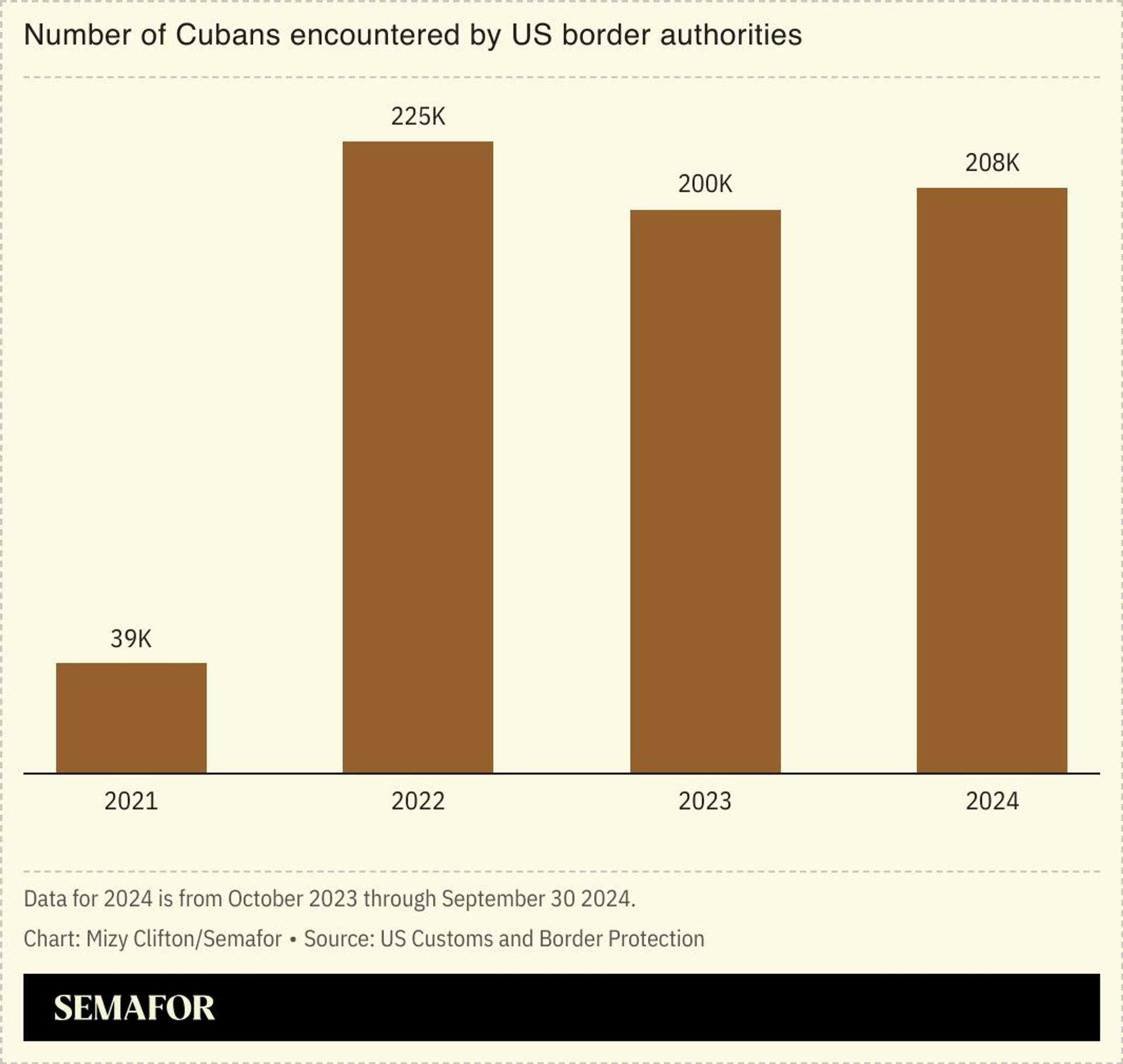The News
Hundreds of Cubans have disappeared in recent years while attempting to reach the US via the Straits of Florida, one of the world’s most perilous migration routes. The UN says at least 626 have died along the crossing since 2014, Reuters reported.
The 90-mile route across the gap from Cuba to Florida is plagued by strong currents and violent weather patterns, but can also be significantly cheaper for Cuban migrants compared to a path through central America.
Cuba is undergoing a severe recession, which has led to 850,000 arriving in the US since 2022, and a national population depletion of 18%, according to El País. So far this year, 66,000 have also been intercepted by the US Coast Guard attempting to reach Florida by boat.

SIGNALS
US sanctions a ‘scapegoat’ for Cuba’s economic problems
The latest round of migration talks between the US and Cuba in April 2024 resulted in Havana resorting to its “well-worn” argument, blaming Washington’s economic embargo, according to Michael Lima Cuadra for LatinoAmerica21. However, the reality is much more likely internal rather than external, he added, citing unpopular Cuban economic reforms in 2020, the pandemic’s impact on tourism and remittances, and a decline in oil exports to the island from Venezuela. According to a local survey, a majority of Cubans blame their own government, viewing it as having an outdated economic system that severely restricts self-employment and the functioning of non-governmental organizations, leaving individuals feeling “powerless,” Cuadra added.
China is ‘not Cuba’s sugar daddy’
Despite being the only Communist country in the Western hemisphere, Cuba’s relationship with China — it’s longtime political ally — is fraying, according to the Financial Times. Chinese imports to the island have been falling annually, meanwhile Chinese trade with other countries in Latin America has grown more than tenfold in the last two decades, reducing Cuban-Chinese relations mostly to “solidarity statements,” without many strategic benefits for either country, according to a former US national intelligence officer in the region. Instead Chinese officials are “perplexed and frustrated” at Cuba’s unwillingness to reform it’s vertically structured economic model, and are unwilling to hand out charity when Cuba has little to offer them in return, another expert told the outlet.

